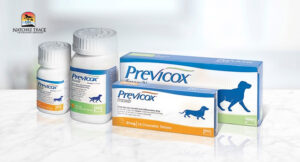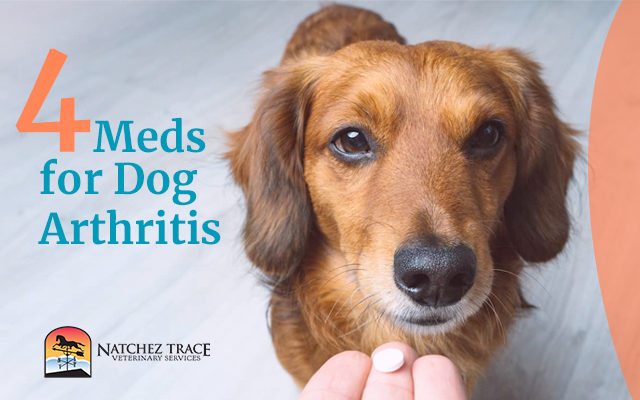Dog arthritis is chronic joint inflammation that can cause your furry friend to experience a range of uncomfortable symptoms, from stiffness and limping to difficulty standing up or walking.
This condition can make it hard for your dog to enjoy daily activities like going for walks, playing fetch, or jumping on furniture, and can even impact their quality of life if left untreated.
In this article, we’ll explore the causes, symptoms, and treatment options for dog arthritis, so you can help your beloved pet live a happy, healthy life.
4 Facts About Dog Arthritis
Did you know dog arthritis:
- Is the #1 cause of chronic pain in dogs
- Affects 20% of dogs over 1 year of age
- Affects both quality and length of life
- Is in the “Top 10” veterinary diagnoses for dogs over seven years old
In addition, at least 31% of dog owners say bone and joint problems are an issue for their pet.
Arthritis pain not only affects people, but it also takes an unbelievable often unrecognized toll on our beloved furry friends as well.
“Arthritis is the #1 cause of chronic pain in dogs.”
-Clinician’s Brief (April 2005)
For example, Fido is an 11-year-old Bulldog I recently examined.
 Just last year, Fido would “romp, play, and jump just like a puppy.” Now, Fido “limps, lays around, and acts like an old man.
Just last year, Fido would “romp, play, and jump just like a puppy.” Now, Fido “limps, lays around, and acts like an old man.
Fido’s life has changed! Not for the better, but worse!
And, just because Fido doesn’t complain about his situation doesn’t mean he feels no pain. Remember, dogs can’t talk!
But, dogs can tell you a lot about how they feel through the way they act.
Some signs of arthritis pain in dogs include:
 Reluctance to walk, run, climb stairs, jump, or play
Reluctance to walk, run, climb stairs, jump, or play- Difficulty in rising from rest
- Lameness
- Stiffness
- Yelping or whimpering
- Personality changes, withdrawal
- Soreness when touched
- Lagging on walks
- Decreased mobility
- Aggressive behavior
If your dog is experiencing one or more of these symptoms, a trip to your veterinarian might be a good idea. Your vet can manually manipulate your dog’s joints to determine the severity of his situation.
Fortunately, there are some very effective medications available to make your dog feel better.
4 Meds That Wipe Out Dog Arthritis Pain
The following four medications wipe out dog arthritis pain and make Fido feel more like the romping, playful, jumping pup he used to be.
1. Previcox
 Previcox (firocoxib) is a non-narcotic, non-steroidal anti-inflammatory drug veterinarians use to control pain and inflammation associated with osteoarthritis in dogs. It is available in a once-daily dosage that provides relief for 24 hours.
Previcox (firocoxib) is a non-narcotic, non-steroidal anti-inflammatory drug veterinarians use to control pain and inflammation associated with osteoarthritis in dogs. It is available in a once-daily dosage that provides relief for 24 hours.
Previcox should not be given to dogs with firocoxib sensitivity and cannot be accurately dosed in dogs under seven pounds.
In addition, Previcox should not be given to dehydrated dogs, dogs on diuretic therapy, or dogs with existing renal, cardiovascular, and or hepatic dysfunction. Adverse reactions include vomiting, diarrhea, decreased appetite, anorexia, pain, lethargy, somnolence, and hyperactivity.
2. Rimadyl
 Rimadyl (carprofen) is a non-steroidal anti-inflammatory drug veterinarians use to treat pain and inflammation from osteoarthritis in dogs. It is also used to control post-surgery pain in dogs. It is given for arthritis, joint pain, hip dysplasia, and joint deterioration.
Rimadyl (carprofen) is a non-steroidal anti-inflammatory drug veterinarians use to treat pain and inflammation from osteoarthritis in dogs. It is also used to control post-surgery pain in dogs. It is given for arthritis, joint pain, hip dysplasia, and joint deterioration.
Rimadyl should not be given to dogs with carprofen sensitivity. Adverse reactions may include decreased appetite, vomiting, diarrhea, increased water consumption, pale gums due to anemia, yellowing of gums, increased urination, incoordination, seizure, or behavioral changes.
3. Novox
 Novox (carprofen) is a non-steroidal anti-inflammatory drug veterinarians use to treat pain and inflammation from osteoarthritis in dogs. Novox is another brand name for carprofen, like Rimadyl. Vets also use it to control post-surgery pain in dogs. Vets use Novox for arthritis, joint pain, hip dysplasia, and joint deterioration.
Novox (carprofen) is a non-steroidal anti-inflammatory drug veterinarians use to treat pain and inflammation from osteoarthritis in dogs. Novox is another brand name for carprofen, like Rimadyl. Vets also use it to control post-surgery pain in dogs. Vets use Novox for arthritis, joint pain, hip dysplasia, and joint deterioration.
Novox should not be given to dogs with carprofen sensitivity. Adverse reactions may include decreased appetite, vomiting, diarrhea, increased water consumption, pale gums due to anemia, yellowing of gums, increased urination, incoordination, seizure, or behavioral changes.
4. Deramaxx
 Deramaxx (deracoxib) is a non-steroidal anti-inflammatory drug of the coxib class that received FDA approval in August 2002 for dogs weighing four pounds or more. This product eases the discomfort and pain associated with arthritis and joint disease. Deramaxx will improve your dog’s quality of life and help him maintain his regular activity level.
Deramaxx (deracoxib) is a non-steroidal anti-inflammatory drug of the coxib class that received FDA approval in August 2002 for dogs weighing four pounds or more. This product eases the discomfort and pain associated with arthritis and joint disease. Deramaxx will improve your dog’s quality of life and help him maintain his regular activity level.
I avoid Deramaxx or administer it with extreme caution in dogs with gastrointestinal ulcers, hepatic disorders, dehydration, renal disease, or cardiac disease. And, I never give Deramaxx to dogs with a deracoxib sensitivity.
More Powerful Tools for Overcoming Dog Arthritis Challenges
 There are many quick and easy changes you can make at home to help you give your dog an edge on easing dog arthritis pain.
There are many quick and easy changes you can make at home to help you give your dog an edge on easing dog arthritis pain.
In addition, there are many excellent natural options for helping dogs suffering from arthritis.
- Get our free ebook “Dog Arthritis 101: Make Your Dog Feel Better.”
- Try cooking for your dog or feeding high-quality dog food. Home-cooked diets and wet food help keep your pet from gaining too much weight. In turn, less weight means less stress on your dog’s bones and joints. PET | TAO Chill is my top choice for arthritic dogs.
- Ease your dog’s discomfort naturally. PET | TAO Comfort is a blend of Eastern herbs and Western supplements to soothe your dog’s arthritic challenges to make him/her more comfortable.
- Provide joint support. PET | TAO’s Harmonize Joint is a blend of Eastern herbs and Western supplements working together to lubricate and restore your dog’s joints.
- Try Freeze-Dried Kidney Treats. According to TCVM, the Kidney controls the bones and joints and supports arthritic challenges in a “like treats like” manner.
- Learn more about TCVM Herbal Remedies. Chinese medicine offers many amazing natural solutions for dog arthritis. Some good examples are:







